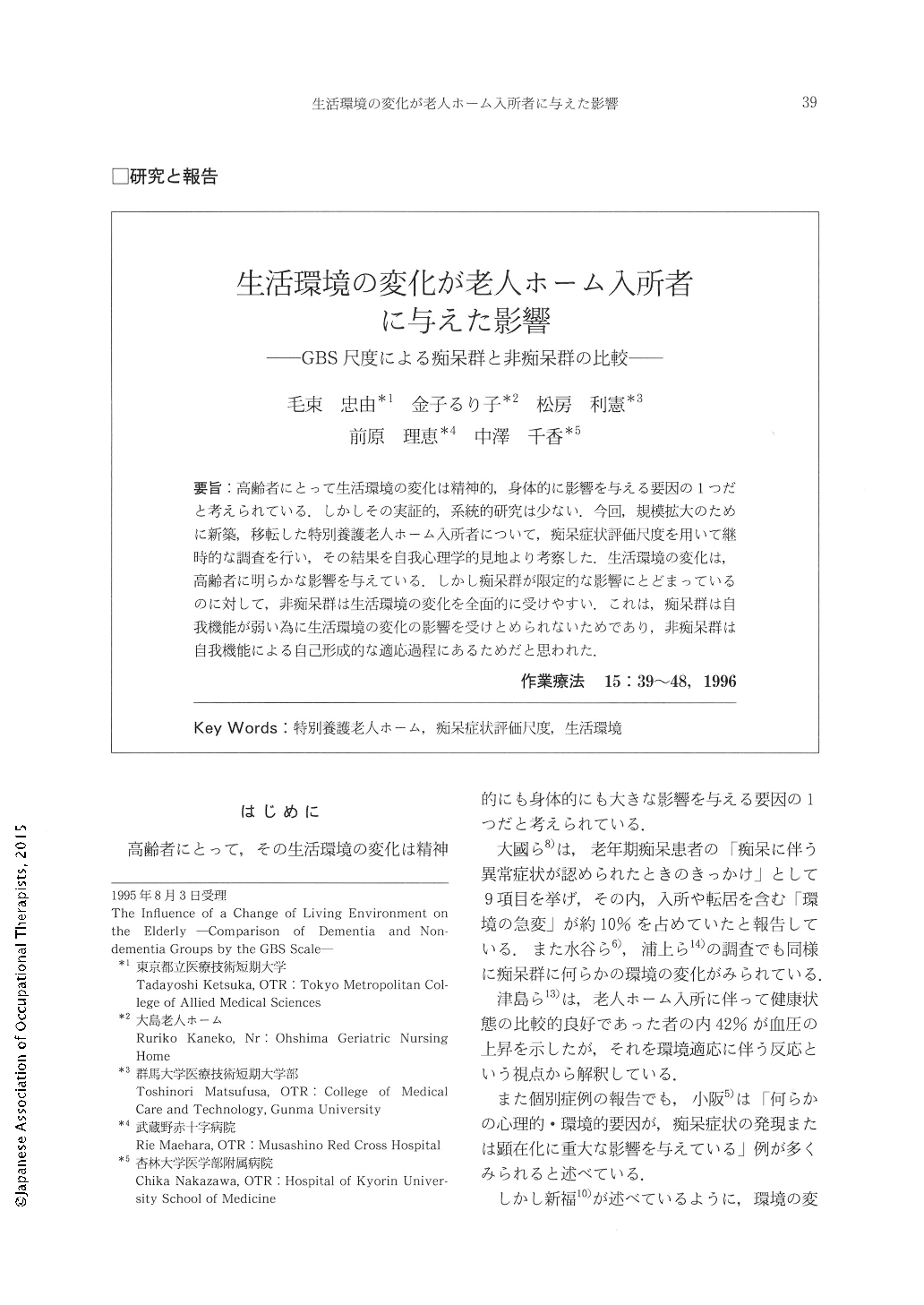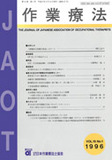Japanese
English
- 販売していません
- Abstract 文献概要
- 1ページ目 Look Inside
- 参考文献 Reference
要旨:高齢者にとって生活環境の変化は精神的,身体的に影響を与える要因の1つだと考えられている.しかしその実証的,系統的研究は少ない.今回,規模拡大のために新築,移転した特別養護老人ホーム入所者について,痴呆症状評価尺度を用いて継時的な調査を行い,その結果を自我心理学的見地より考察した.生活環境の変化は,高齢者に明らかな影響を与えている.しかし痴呆群が限定的な影響にとどまっているのに対して,非痴呆群は生活環境の変化を全面的に受けやすい.これは,痴呆群は自我機能が弱い為に生活環境の変化の影響を受けとめられないためであり,非痴呆群は自我機能による自己形成的な適応過程にあるためだと思われた.
It is generally accepted that a change of one's living environment is one of the factors that worsens dementia, although there are few systematic studies on this subject. This study was designed to clarify the influence of a change of living environment on the eldenly using a rating scale for dementia syndromes (GBS scale). Subjects were 57 elderly (13 dementia, and 44 nondementia) who were transferred to the new building of the geriatric nursing home during the same period.
GBS scale rating was done five times within a period of 8 months. The 1 st rating was conducted prior to and the 2nd, immediately after transfer, and the rest were done at regular intervals of two months.
The Results were as follows: 1) Their dementia stage worsened after the change of living environment. 2) The Dementia group were only moderately influenced, while the nondementia group were severly influenced as observed by the GBS scale changes. 3) The Dementia group were unsuccessful in responding to the stress du to their poor ego function, while the nondementia group were successful in responding to the stress and in trying to form an adaptive behavior in accordance with ego function.

Copyright © 1996, Japanese Association of Occupational Therapists. All rights reserved.


